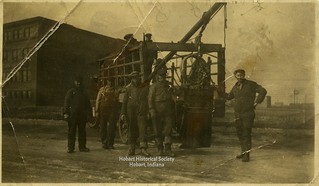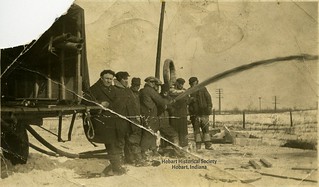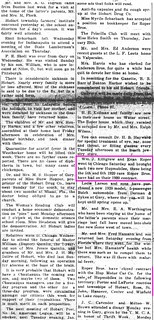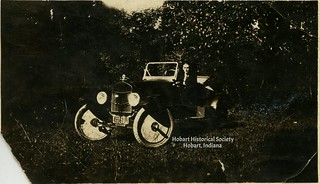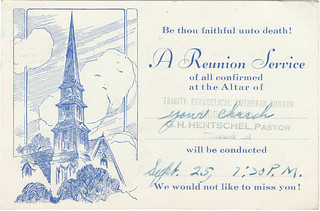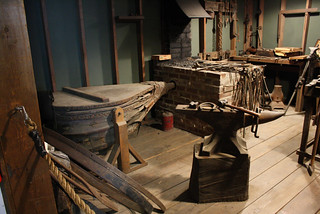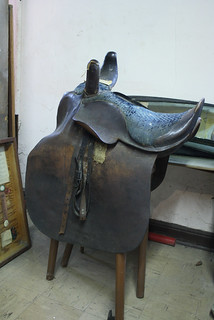Burt Thompson, Jr. closed up the 5 and 10¢ store shortly after 6:00 in the evening on Monday, January 26, 1920, and went home to his
young wife, the former Elsie Sievert, and their new baby. And supper, and so to bed, and all was well.
A few hours later, all was
not well.
Above the Thompsons' store, Dr. L.M. Friedrich and family lived on the second floor of the building that bore his name. Around 11:00 p.m., Mrs. Friedrich — sleeping badly because of a cold — awoke to the strong smell of smoke. She and her husband soon realized that somewhere on the first floor was a serious fire. The whole Friedrich family, including five children and the doctor's elderly father, fled the building and alerted the fire department.
The town's "fire whistle sounded twice, signifying urgency," and the firefighters arrived to find flames pouring out of a rear window, from fire in the back rooms on the first floor. Once attacked, the blaze was beaten down quickly — the
Gazette "warmly commended" Chief Fred Rose, Sr. and his men for "efficient work." They had saved the building, and without flooding the basement, where the Thompsons stored merchandise.
Still, there was considerable damage, from both water and heat. The fire had consumed some merchandise and singed even more; it had burned the labels off the canned goods; it had even cracked the plate glass in the front windows of the store. Everything, of course, reeked of smoke. By the next morning, the store that Burt Thompson had carefully locked up the previous evening was a shambles. About 80 percent of the total merchandise was destroyed or damaged. Fortunately, the store was insured, as was the building itself.
But the fire had closed down the Thompsons' business, and even the second floor was uninhabitable at the moment. The store would need repair and redecoration before it could open again, and the Friedrichs had to find another home temporarily.
The Thompsons set about reconstructing their business. The next week's
Gazette carried their announcement of a "salvage sale" of their damaged merchandise, which would allow them to recoup some of their loss. And they took the forced closure of their store as an opportunity to do some remodeling and redecorating; another six weeks, perhaps, and they hoped to re-open the "ten-cent store" with a bright new look and a fresh stock of merchandise.
♦ ♦ ♦Below its report on the fire, the
Gazette's front page carried a couple items bringing us the news that (a) Lee & Rhodes, the plumbers, were selling electric washing machines now, and (b) the proud new owners of the
Deep River general store had just become the proud parents of a new baby girl as well.
Sources:
♦ "Births." Hobart News 30 Jan. 1920.
♦ "Fire Ruins 10¢ Store Stock." Hobart Gazette 30 Jan. 1920.
♦ "Local and Personal." Hobart News 18 Mar. 1920.
♦ "Salvage Sale." Hobart Gazette 6 Feb. 1920.
♦ "Thompson Co. Store Damaged by Fire Monday Evening." Hobart News 29 Jan. 1920.
♦ "You Need a Washing Machine?" Hobart Gazette 30 Jan. 1920.






















